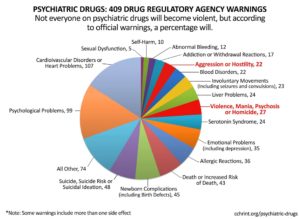As a practicing physician, Paul has the most insight into what is right – and wrong – with the U.S. healthcare system among all the GOP candidates. As such, when he re-introduces legislation such as the Parental Consent Act, which he first proposed in 2009 and which would keep federal funds from being used to establish or implement any universal or mandatory mental health, psychiatric, or socioemotional screening program, you should listen.
Though first introduced a couple of years ago, the repackaged Parental Consent Act of 2011 (H.R. 2769 – previously H.R. 2218 in 2009) would keep “federal education funds from being used to pay any local educational agency or other instrument of government that uses the refusal of a parent or legal guardian to provide consent to mental health screening as the basis of a charge of child abuse, child neglect, medical neglect, or education neglect until the agency or instrument demonstrates that it is no longer using such refusal as a basis of such charge,” according to the Citizens Commission on Human Rights International.

